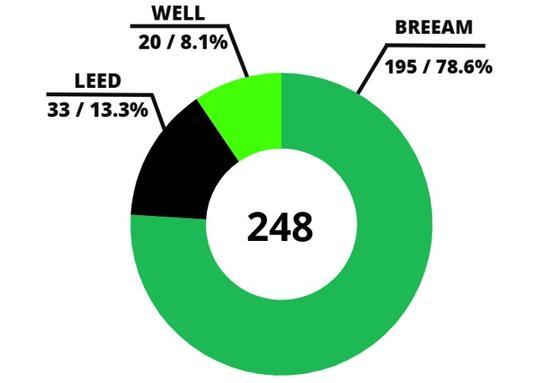According to ÚPSVaR data, the registered unemployment rate in Slovakia was 5.21% in September. In half of the regions - in the western part of our country, this figure is even close to 3%. In the last quarter, companies have the strongest recruitment plans since the beginning of 2022.
According to the president of the Association of Personnel Agencies of Slovakia (APAS), Zuzana Rumiz, the number of employees of Slovak employers is expected to increase by up to 31%. "The pure labor market index, adjusted for seasonal fluctuations, is at the level of + 15% throughout Slovakia. This means that employers in all regions plan to hire more people than fire them. Compared to the previous quarter, this index increased by 5 percentage points, year-on-year by up to 7 percentage points," says Zuzana Rumiz and clarifies: "According to a survey by the ManpowerGroup Slovakia agency, the most companies in Bratislava anticipate hiring new people, where the net labor market index is + 25 %. In Western and Central Slovakia, it is exactly +11%, Eastern Slovakia lags behind with a net labor market index of +6%, which has decreased here compared to the last quarter."
WHERE ARE THE RESERVES OF OUR LABOR MARKET?
According to another expert from APAS, Róbert Čvapek, even companies that have postponed their recruitment plans until now want to create new jobs to a greater extent in this period. And this despite the fact that the economy is heading towards only moderate growth and a higher degree of instability still persists. However, the possibilities of our labor market are almost exhausted and we are significantly behind in employing foreigners. So where do companies want to find new people?
R. Čvapek sees a way also in the search for hitherto unused reserves in the domestic labor market. "This is already evident today in the fact that many employers are waiving requirements for, for example, education or technical skills. They are also willing to accept candidates they would not have been so willing to reach for in the past. About a third of employers today are more willing to hire applicants who are older or want to significantly change their work focus. About a quarter would also accept those who do not meet all the requirements and technical skills, or are long-term unemployed. Today, these people have a better chance to return to the work process," emphasizes the expert and adds: "I would also like to highlight the fact that many employers also work with marginalized communities and give a chance to applicants who have no work experience or habits .”
EMPLOYING PENSIONERS CAN BENEFIT BOTH PARTIES
With the growing shortage of employees, employers have to look for people in higher age categories as well. "If older people want to change jobs, they have a good chance of succeeding right now," says Peter Uličný, another member of the Association of Personnel Agencies of Slovakia, who also draws attention to the 1.4 million Slovak pensioners in this regard. "They are often people with a lifetime of work experience who are willing and able to continue to be involved. Seniors are led to return to work not only by the rising cost of living, but also by the desire to participate in events. If they remain active and engaged in work, maintain social contacts, it can also contribute to a better quality and length of their lives," emphasizes the expert.
According to surveys, about 30% of companies are willing to hire older applicants, but only 19% of managers are actively looking for employees of retirement age. "That's why I see certain reserves in changing the approach of employers to employing these people," adds Z. Rumiz.
SKILLS BECOME MORE IMPORTANT THAN EDUCATION
The lack of talent has reached a 17-year high on a global scale, and companies doing business in Slovakia are also struggling with it. Employers are therefore reducing or adjusting their requirements for job applicants. "Approximately a quarter of employers today are willing to accept candidates who do not have the necessary education or technical knowledge. For companies, the so-called soft skills - responsibility and reliability are given the greatest weight in this regard, but also the ability to solve problems, communicate and work together in a team," clarifies R. Čvapek.
According to Petr Uličný, the times when education was the key data for filtering applicants are behind us, which can be beneficial for employers from several points of view: "In the case of a simple classification based on education, for example, applicants without a university degree would not have access to some job positions , even if they have adequate skills and experience. Therefore, more and more employers today are reducing or canceling requirements for specific education and focusing rather on the aforementioned soft skills of applicants, on their experience gained in their previous work, on their willingness to learn new things, etc. When evaluating on the basis of various information, not only according to one criterion, it is possible to better assess the overall potential of a specific person."
INVESTMENTS IN PEOPLE ARE ALSO NECESSARY
Especially for workers who do not have the necessary education or







